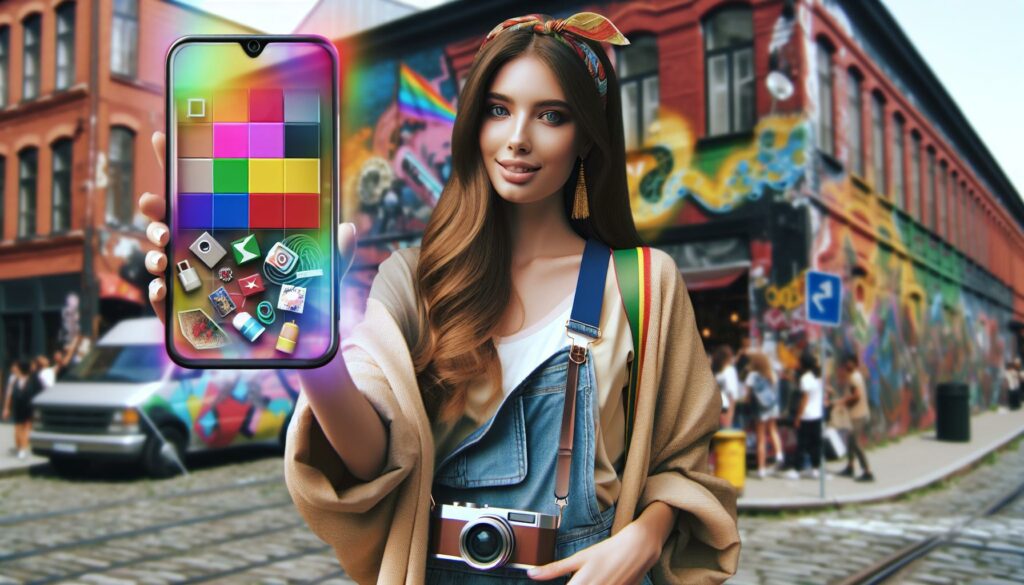In today’s digital playground, social media influencers wield more power than a magician with a wand. With a single post, they can turn a humble product into the hottest trend faster than you can say “viral.” These modern-day trendsetters have mastered the art of persuasion, captivating audiences with their charm, wit, and carefully curated feeds.
The Power of Social Media Influencers
Social media influencers have quickly become pivotal players in the digital marketing arena. Their rise reshapes how brands approach advertising and consumer engagement.
History and Evolution
Initially, ordinary users with large followings emerged as trendsetters. These individuals gained traction on platforms like Instagram and YouTube during the early 2010s. Over time, brands recognized the potential of collaborating with influencers to reach specific audiences. By 2015, influencer marketing gained substantial momentum, with companies reallocating marketing budgets to capitalize on reach and authenticity. Fast forward to 2020, and influencer marketing reached an estimated $10 billion industry. The combination of relatable content and personal connections with followers turned influencers into essential marketing assets.
Current Trends
Today, influencers span various niches, including travel, beauty, fitness, and tech. Micro-influencers, those with 1,000 to 100,000 followers, gained popularity due to their high engagement rates. Authenticity remains key; audiences prefer genuine interactions over overly polished promotions. Video content, especially short-form videos on platforms like TikTok, drives immense engagement. Brands increasingly focus on long-term partnerships instead of one-off collaborations to establish deeper connections. Transparency and ethical marketing also shape the influence landscape, with audiences valuing honesty in brand promotions.
Impact on Consumer Behavior

Social media influencers significantly shape consumer behavior through trust and authenticity. Followers often view influencers as relatable figures, fostering a sense of connection. Authentic content resonates more with audiences, leading to higher engagement. A 2023 survey revealed that 92% of consumers trust recommendations from influencers over traditional advertisements. Consistency in messaging builds credibility, encouraging followers to act on influencers’ suggestions. Brands benefit from this dynamic, as perceived authenticity translates into increased sales and loyalty.
Engagement and interaction are central to the influencer’s impact on consumer behavior. Influencers create a dialogue with their audience, fostering community and trust. Features like comments, direct messages, and live sessions promote deeper connections. Research shows that posts with higher interaction rates lead to greater conversion, as users feel an emotional investment in the content. Personal stories from influencers often inspire consumers to try new products. Engaging content encourages users to share their experiences, amplifying brand visibility and reach.
Business Collaborations

Social media influencers play a crucial role in driving brand success through collaborations. These partnerships create unique opportunities for businesses to reach new audiences and enhance their visibility.
Partnering with Brands
Collaboration between influencers and brands fosters authentic connections. Influencers curate content that aligns with their personal brand and resonates with their audience. This synergy allows brands to tap into influencers’ established trust, leading to increased brand loyalty. Over 90% of consumers prefer relatable recommendations from influencers rather than traditional advertising. Successful partnerships often involve clear communication of goals and expectations, ensuring both parties benefit from the arrangement.
Influencer Marketing Strategies
Strategic influencer marketing leverages social media to amplify brand messages. Brands often identify influencers who align with their target demographics to foster authentic engagement. Utilizing various formats, including stories, posts, and videos, enhances the storytelling aspect of campaigns. Implementing performance metrics to measure the impact of collaborations ensures accountability. Consistent assessment of results allows brands to refine their strategies, driving success in future influencer partnerships.
Challenges Faced by Influencers

Influencers encounter numerous challenges in their careers despite their significant impact. Addressing these obstacles is essential for success in the rapidly evolving landscape.
Content Saturation
Content saturation poses a major challenge for influencers. With millions of posts flooding social media, standing out becomes increasingly difficult. Users face information overload, leading to reduced engagement rates as audiences scroll past similar content. Innovative and unique approaches capture attention. For example, influencers leverage storytelling techniques or interactive elements to create memorable experiences. Authenticity remains crucial in a saturated market; followers gravitate toward genuine personalities. A 2023 report finds that 63% of consumers favor distinctive content over repetitive posts. Crafting a personal brand and strategizing content effectively helps influencers rise above the noise.
Managing Public Perception
Managing public perception can significantly impact an influencer’s career. Negative feedback or controversies can quickly escalate, requiring swift and thoughtful responses. Navigating this landscape demands transparency and accountability. By addressing issues candidly, influencers build trust and foster loyalty among followers. Consistent engagement plays an important role in shaping perceptions; responding to comments enhances relationships. A survey shows that 78% of users appreciate influencers who actively communicate their values. Maintaining an authentic image strengthens connections, enabling influencers to shape their narratives. Regularly sharing behind-the-scenes content cultivates a relatable persona, reinforcing positive public perception.
The Future of Influencer Marketing
The future of influencer marketing promises continued evolution. Emerging platforms will shape how influencers engage with audiences.
Emerging Platforms
Social media continues to diversify, with new platforms rising each year. TikTok’s short-form video format has already changed content delivery significantly. Other platforms like BeReal and Clubhouse offer unique engagement opportunities, focusing on authenticity and real-time connection. Influencers embracing these platforms can reach untapped audiences. Emerging technologies such as augmented reality (AR) and virtual reality (VR) enhance interactive content, inviting deeper audience engagement. Research shows that 63% of consumers prefer distinctive content, driving influencers to adapt their strategies accordingly. Maintaining agility in content creation becomes crucial for staying relevant.
Predictions for the Industry
Experts predict the influencer marketing industry will exceed $15 billion by 2025. Long-term partnerships between brands and influencers will become the norm, fostering trust and authenticity. Micro-influencers, with their niche followings, are likely to capture more market attention, as brands recognize their high engagement rates. Companies will increasingly prioritize ethical practices and transparency, aligning with consumer preferences for authenticity expressed in surveys. Data indicates that 92% of consumers trust recommendations from influencers more than traditional advertising, solidifying influencers’ roles as trusted voices. Adapting to trends like video content and interactive storytelling will be vital for brands aiming to thrive in the evolving landscape.The influence of social media influencers is undeniable in today’s digital landscape. Their ability to connect with audiences and drive engagement has transformed marketing strategies across industries. As brands recognize the value of authenticity and relatability, the focus on long-term partnerships with influencers is set to grow.
With emerging platforms and technologies shaping the future, influencers will continue to play a pivotal role in consumer behavior. Their unique storytelling capabilities and genuine interactions foster trust and loyalty among followers. This evolving landscape demands that brands stay adaptable and prioritize ethical practices to resonate with audiences. The journey ahead promises exciting opportunities for both influencers and brands alike.

